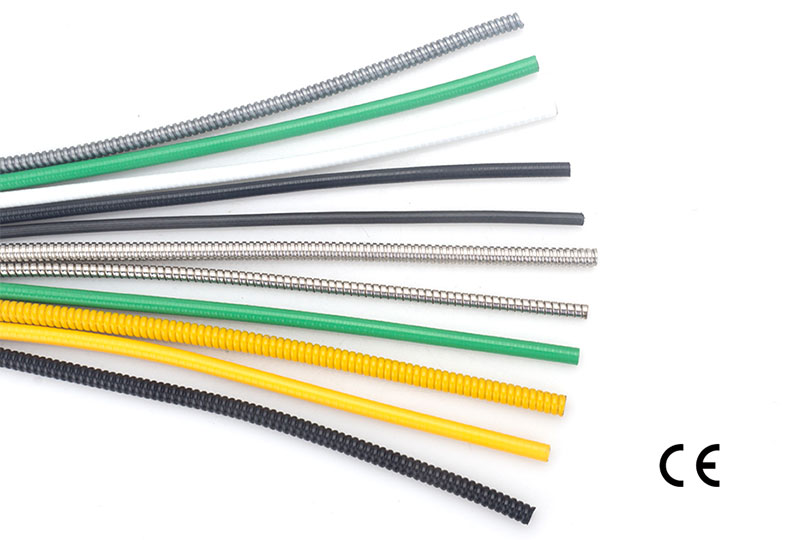Applications of Electrical Flexible Conduit
Electrical flexible conduit is a specialized type of conduit designed to protect and route electrical wires in diverse environments. Unlike rigid conduits, which are inflexible and suited for straight paths, flexible conduits are pliable and can easily navigate through bends, corners, and areas with limited space.
Advantages of Electrical Flexible Conduit
1. Flexibility and Maneuverability
The primary advantage of electrical flexible conduit is its remarkable flexibility. It can be easily bent and shaped to accommodate various installation requirements, making it ideal for locations where rigid conduits are impractical.
2. Protection from Environmental Factors
Electrical conduit provides a protective barrier to electrical wiring, shielding it from environmental factors such as moisture, dust, chemicals, and physical damage. This protection enhances the longevity and reliability of electrical systems.
3. Vibration and Impact Resistance
Flexible conduits are known for their ability to absorb vibrations and impacts, making them suitable for installations in areas with machinery, heavy equipment, or high foot traffic. This feature prevents damage to the wiring and ensures consistent electrical performance.
4. Ease of Installation
Installing electrical flexible conduit is relatively straightforward. Its flexibility allows for easy threading through tight spaces, while connectors and fittings ensure secure connections to junction boxes and devices.
5. Compatibility with Various Wiring Types
Electrical flexible conduit is compatible with a range of wiring types, including standard electrical wires, fiber optics, and communication cables. This versatility makes it a preferred choice for a wide spectrum of applications.
6. Variety of Materials
Flexible conduits are available in various materials, each catering to specific environmental conditions. From galvanized steel for rugged environments to PVC for indoor installations, you can choose the material that best suits your needs.
Recommended article:How Do Deep Cycle Battery packs Work?
What are Types and Applications of Lithium Batteries?
Small Size, Big Impact: How Micro Camera Modules Are Changing Industries
Choosing and Installing PE Cable Threading Pipe
How Does the Electric Blanket Controller Work?
What happens when a PTC is heated?
LED video walls

Applications of Electrical Flexible Conduit
The versatility of electrical flexible conduit makes it suitable for a wide array of applications across industries:
Commercial and Industrial Wiring
In commercial and industrial settings, where wiring may need to navigate around obstacles or machinery, electrical flexible conduit provides a reliable solution for safe and efficient wire routing.
Data Centers and Communication Networks
Flexible conduits are integral to data centers and communication networks, ensuring organized and protected cable management. Their vibration resistance is particularly beneficial in environments where sensitive equipment is housed.
Residential Installations
For residential wiring, electrical flexible conduit is used to protect wiring in areas where there's a risk of damage, such as basements, garages, and outdoor installations.
Automotive Wiring
In the automotive industry, electrical flexible conduit is employed to protect wiring systems in vehicles, safeguarding them from the vibrations, impacts, and harsh conditions experienced on the road.
Conclusion
Electrical flexible conduit represents a pivotal advancement in electrical wiring solutions, catering to the modern need for both protection and adaptability. Its flexibility, durability, and versatility make it an essential component in a variety of applications, from industrial installations to residential wiring systems. By incorporating Flexible Electrical Conduit into your projects, you enhance the safety, reliability, and longevity of your electrical systems.
Recommended article:What Led walls are used for and how they work
How does an Automotive Agm Start-Stop Battery differ from a traditional battery?
Differences Between An LED Display And LCD Monitor
Are Compact Substations the Ideal Choice for Large-Scale Power Distribution Projects?
What is surface mount technology (SMT)?
7 Things You Should Know About Outdoor LED Billboards



